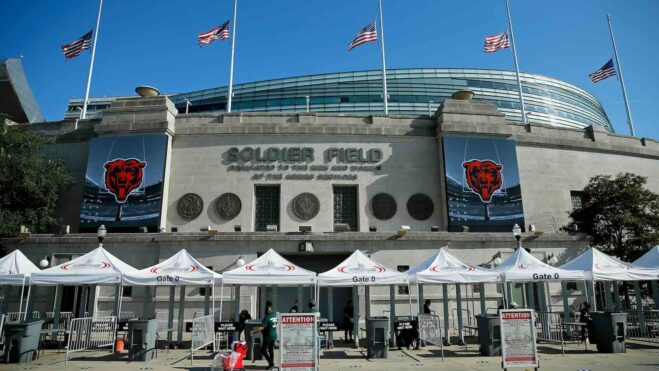New York’s Minimum Gambling Age Up For Discussion Alongside Renewed iGaming Effort
There’s a possible twist ahead, considering the statuses of Aqueduct and Yonkers
3 min

New York state Sen. Joseph Addabbo Jr. has spent more than a decade on a quixotic mission to raise the minimum age to gamble at state-approved facilities that feature video lottery terminals (VLTs) from 18 to 21 — which would match the age minimum for patrons of the state’s four commercial casinos to play strikingly similar slot machines, or any popular table games such as blackjack or roulette.
Last week, Addabbo reintroduced a similar version of this measure in Senate Bill 2610, and like the movie Groundhog Day that will be commemorated on Sunday, the result is liable to be rather predictable.
But later this year, there could be a twist. That’s because even if the latest bill stalls again this spring, it’s quite possible that the state’s two largest VLT sites — the Aqueduct and Yonkers horse racing track “racinos,” with thousands of machines at each location open for play every day — in December will get upgraded to full-fledged casinos by being approved by the state Gaming Commission for two of the three New York City-area licenses.
At that point, traditional slot machines would replace similar-looking VLTs, and the minimum age to play any casino games at those locations would become 21. The other VLT sites, on Long Island and in upstate New York, all are much smaller operations and less of a concern. Addabbo notes that Aqueduct, located in his home district, is situated right near a high school — potentially luring some students into legally gambling at VLTs even before they graduate.
“Whatever happens, I think it’s important to send a message that we want to be consistent about how we handle this sort of gambling,” said Addabbo, the chairman of the Senate Committee on Racing, Gaming, and Wagering.
Even so, the Turning Stone Resort Casino near the Adirondack Mountains in upstate New York exercises its sovereign power as a tribal casino to set the minimum gambling age to 18.
Addabbo’s bill would not affect the sale in the state of lottery tickets or wagering on horse racing, which in both cases allow those age 18 or older to participate.
50 states, many sets of rules
The contrast in age requirements hardly is unique to New York — numerous states have varying age minimums for different types of gambling.
Earlier this week, a New Hampshire legislative committee declined to pass a bill that would raise the legal sports betting age to 21 — as most states already do. That leaves New Hampshire alongside Kentucky and Wyoming as states that allow those age 18 to 20 to make such wagers.
Another bill under consideration in New Hampshire to legalize online casino gaming could, if signed into law, make the state the only one in the U.S. to allow for such risk-taking for those age 18 and up, instead of age 21 and beyond.
Louisiana and Arizona are unusual in that the minimum age to play the lottery is 21.
In Alabama, some counties allow 18-year-olds to bet on horse races, while other counties set the minimum at age 19.
In Delaware, 16- and 17-year-olds can legally play bingo — but only when the prizes are merchandise and not cash.
In Maine, children of any age are allowed to visit an off-track horse race betting facility if accompanied by an adult — but those youngsters are not permitted to stand within 15 feet of a betting window.
New Mexico is the lone state that specifically permits wagering on bicycle races — but only for those age 21 and over.
In Ohio, operators of bingo games “conducted by multi-purpose senior centers” must be a minimum of 60 years old, and may not receive compensation.
iGaming effort once again in NY
Another annual effort by Addabbo is introducing a bill that would legalize online casino play, or “iGaming,” in his state. He is well aware of the numbers being piled up by neighboring New Jersey.
In 2024, New Jersey raked in approximately $556 million in taxes from legal iGaming and online sports betting combined. Of that figure, DGE officials reported that $418 million came from online casino play, compared to $138 much more well-publicized online sports betting industry.
With just over double the population of New Jersey, it’s not difficult to envision New York collecting nearly $1 billion in taxes annually from iGaming (with a slightly higher tax rate) when the industry reaches maturity.
But Addabbo is aware that while New Jersey launched its first authorized online casino websites in 2013, it took a number of years for public awareness to reach a critical mass. In fact, New Jersey iGaming site revenues are still growing significantly — up more than 20% from 2022 to 2023 and again from 2023 to 2024.
The diminishing leftover dollars from the massive amount of COVID-19-era federal funds doled out to states several years ago mean many of those states inevitably will seek out new sources of revenue to lessen the need for often politically toxic raising of taxes on the general public.
Addabbo believes that as Gov. Kathy Hochul and legislative leaders start hashing out annual budget numbers in the coming months, some previously opposed to online casino gaming legalization may change their tune given a budget deficit that could wind up in the billions of dollars.
“It has been a frustrating process, but I think the time could be right for taking another look at this option,” Addabbo said.





